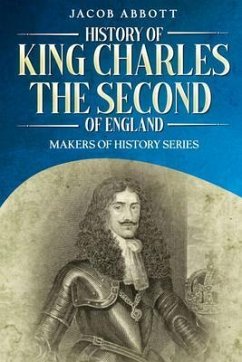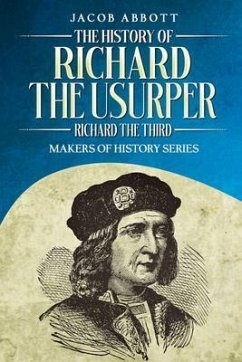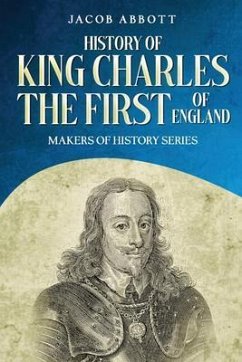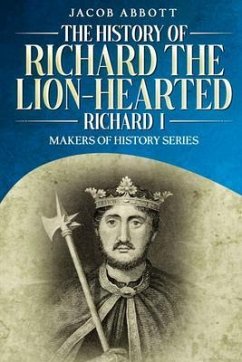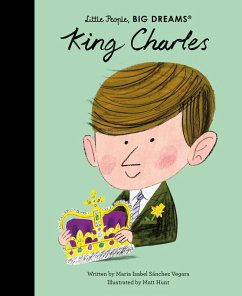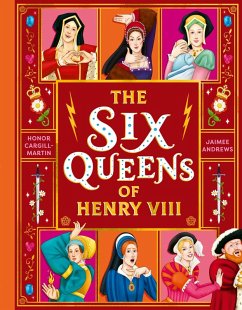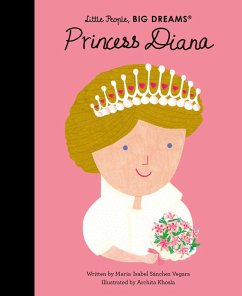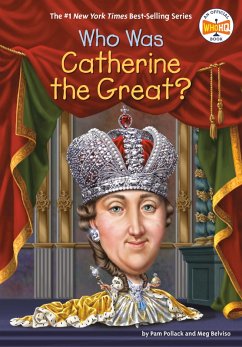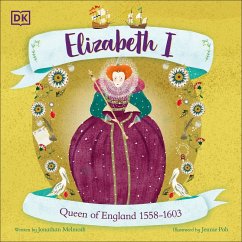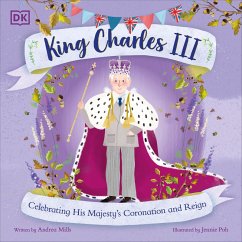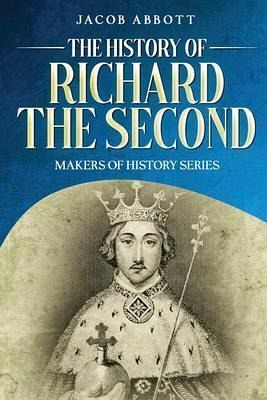
The History of Richard the Second (eBook, ePUB)
Makers of History Series (Annotated)
Versandkostenfrei!
Sofort per Download lieferbar
2,99 €
inkl. MwSt.
Weitere Ausgaben:

PAYBACK Punkte
1 °P sammeln!
Richard II was King of England from 1377 until he was deposed in 1399. Born in 1367, Richard was the son of Edward the Black Prince and grandson of King Edward III. He ascended the throne at the young age of 10 after his grandfather's death.Richard's early reign was largely controlled by his uncles. He assumed full power in 1389 at age 22. Considered intelligent and cultured, Richard promoted architecture, the arts and education. He was also very extravagant in his lifestyle and spent lavishly on court culture.However, Richard proved an ineffective ruler. His policies irked powerful barons and...
Richard II was King of England from 1377 until he was deposed in 1399. Born in 1367, Richard was the son of Edward the Black Prince and grandson of King Edward III. He ascended the throne at the young age of 10 after his grandfather's death.
Richard's early reign was largely controlled by his uncles. He assumed full power in 1389 at age 22. Considered intelligent and cultured, Richard promoted architecture, the arts and education. He was also very extravagant in his lifestyle and spent lavishly on court culture.
However, Richard proved an ineffective ruler. His policies irked powerful barons and commoners alike. Heavy taxation burdens sparked the Peasants' Revolt in 1381, which saw thousands march against the king. Richard met the rebels and agreed to their demands, but later reneged on his promises.
Richard's absolutist approach and his heavy reliance on favorites fueled discontent. Conflict with the barons led to his uncle Thomas of Woodstock's murder in 1397. Richard had Thomas's son exiled and crushed all opposition to his rule - a move that backfired and eroded his authority.
In 1399, Richard's cousin Henry Bolingbroke returned from exile to reclaim his inheritance. Richard's support quickly collapsed and he was forced to abdicate. The Parliament deemed Richard unfit for rule. He was imprisoned and murdered at Pontefract Castle in 1400 at age 33.
Richard's autocratic tendencies and failure to work with the nobility led to his downfall after a turbulent reign. But his lavish tastes and patronage left a cultural legacy that included Westminster Hall in London. Richard II met a tragic end, but his flair for pageantry and the arts resonated through English history.
Richard's early reign was largely controlled by his uncles. He assumed full power in 1389 at age 22. Considered intelligent and cultured, Richard promoted architecture, the arts and education. He was also very extravagant in his lifestyle and spent lavishly on court culture.
However, Richard proved an ineffective ruler. His policies irked powerful barons and commoners alike. Heavy taxation burdens sparked the Peasants' Revolt in 1381, which saw thousands march against the king. Richard met the rebels and agreed to their demands, but later reneged on his promises.
Richard's absolutist approach and his heavy reliance on favorites fueled discontent. Conflict with the barons led to his uncle Thomas of Woodstock's murder in 1397. Richard had Thomas's son exiled and crushed all opposition to his rule - a move that backfired and eroded his authority.
In 1399, Richard's cousin Henry Bolingbroke returned from exile to reclaim his inheritance. Richard's support quickly collapsed and he was forced to abdicate. The Parliament deemed Richard unfit for rule. He was imprisoned and murdered at Pontefract Castle in 1400 at age 33.
Richard's autocratic tendencies and failure to work with the nobility led to his downfall after a turbulent reign. But his lavish tastes and patronage left a cultural legacy that included Westminster Hall in London. Richard II met a tragic end, but his flair for pageantry and the arts resonated through English history.
Dieser Download kann aus rechtlichen Gründen nur mit Rechnungsadresse in A, D ausgeliefert werden.




